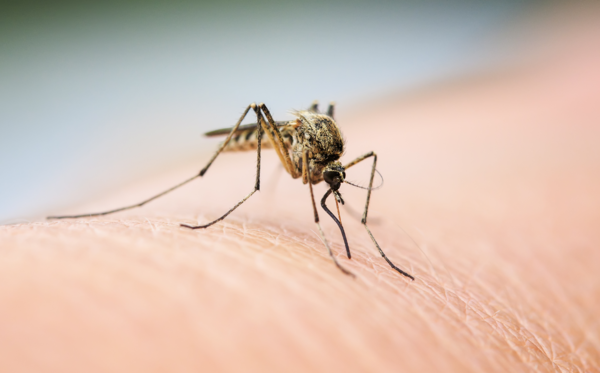WEHI researchers have visualised a key protein complex in malaria parasites for the first time, uncovering a potential new target for next-generation vaccines that could help stop the disease from spreading.
Using cutting-edge cryo-electron microscopy, the team captured the first detailed structure of a protein complex essential for malaria parasite fertilisation.
The discovery published in Science has led to the development of a promising new mRNA vaccine candidate that stops the malaria parasite from reproducing inside mosquitoes, breaking the cycle of transmission before it can reach humans.
Malaria remains one of the world’s deadliest infectious diseases, responsible for more than 600,000 deaths each year.
The researchers discovered two small domains of the Pfs230-Pfs48/45 fertilisation complex that are crucial for the parasite’s ability to fertilise and spread. A new mRNA vaccine induced antibodies targeting these domains, which stopped the parasite from reproducing in mosquitoes, cutting transmission by up to 99.7 per cent.
For many years, scientists have known that two key proteins that appear on the surface of the malaria parasite, Pfs230 and Pfs48/45, are essential for transmission of the disease.
Lead researcher Dr Melanie Dietrich said the new study revealed for the first time how these proteins interact, revealing a new vaccine target.
“Our structural biology approach was the key. Using cryo-electron microscopy, we were able to visualise the full fertilisation complex directly from the parasite – not a lab-made version,” said Dr Dietrich, a WEHI postdoctoral fellow.
"This gave us a clear picture of how this fertilisation complex really looks in nature, and revealed a previously unknown region that’s crucial to the process, unlocking a powerful new vaccine target.”
Lead researcher Professor Wai-Hong Tham said that by capturing the fertilisation complex directly from the parasite, the team revealed the precise contact points that make transmission possible.
"We used these findings to develop a vaccine that showed great promise in targeting these contact points,” Prof Tham, a WEHI laboratory head, said.
“To eliminate malaria, we need to stop transmission. This vaccine candidate could be one piece of that puzzle.”
Building on the discovery, the team designed a next-generation mRNA vaccine, which was formulated in collaboration with the mRNA Core facility at the Monash Institute of Pharmaceutical Sciences (MIPS).
In preclinical studies, the vaccine triggered high levels of antibodies that recognised the parasite and blocked transmission in mosquitoes by up to 99.7 per cent.
Professor Colin Pouton from MIPS said it was an exciting opportunity for his team to leverage their expertise in mRNA vaccine development to address an important new target for malaria vaccination.
“Drawing on experience through mRNA Core, the MIPS team shifted focus to tackle a new challenge in malaria vaccination,” said Professor Pouton.
“The success of the malaria vaccine program illustrates the versatility of mRNA technology, which has many applications beyond the COVID vaccines. It was particularly rewarding to work on this project with the WEHI team, co-located in the Parkville precinct, where shared expertise has helped drive a new approach to malaria prevention."
The team envisions the mRNA vaccine as part of a multi-stage strategy, targeting the parasite in both the mosquito and human host.
By combining transmission-blocking vaccines with those that act on blood or liver stages in people, researchers hope to build a comprehensive defence that could dramatically reduce the malaria burden and move closer to elimination.
Professor Tham said the collaboration between WEHI and MIPS highlighted the strength of the Melbourne Biomedical Precinct and the potential of mRNA technology to rapidly translate basic science into vaccine innovation.
“The ability to design, formulate and test vaccine candidates within a single research ecosystem has accelerated the path from discovery to preclinical validation,” she said.
